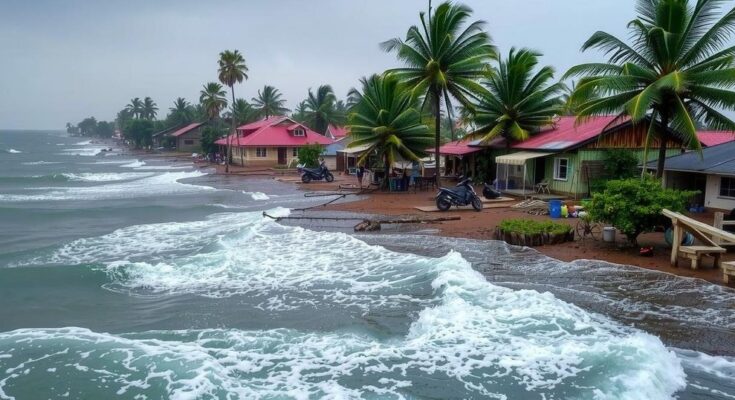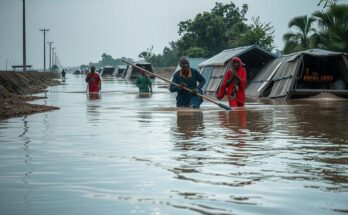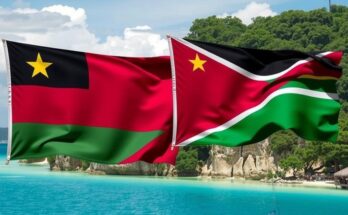Cyclone Chido has devastated Mozambique, resulting in a death toll of 94, with 620,000 affected, primarily in Cabo Delgado. The cyclone, fueled by climate change, has compounded existing political unrest in the region. Daniel Chapo, the ruling party’s candidate, has called for national solidarity in aiding the victims.
Mozambique has reported a tragic increase in the death toll from Cyclone Chido, which has now risen to 94, as confirmed by the country’s disaster management agency. The cyclone made landfall approximately one week ago, primarily impacting the Mayotte archipelago, while also significantly affecting Mozambique, particularly the northern province of Cabo Delgado. The cyclone unleashed destructive winds of up to 260 kilometers (160 miles) per hour, resulting in heavy rainfall of 250 millimeters (10 inches) within a single day. Approximately 620,000 individuals have been adversely affected by the storm, with the majority residing in Cabo Delgado. Experts have attributed the cyclone’s severity, along with its consequences, to the ramifications of human-induced climate change.
In addition to the crisis posed by Cyclone Chido, Cabo Delgado faces ongoing challenges from a persistent Islamist insurgency, contributing to a complicated humanitarian situation. This natural disaster emerges amidst a backdrop of political turmoil in Mozambique, where the aftermath of post-election violence has claimed at least 130 lives. Daniel Chapo, the ruling Frelimo party’s presidential candidate, visited the cyclone-affected areas and called upon the populace to assist those affected. He stressed the importance of collective support, stating, “Even if we are using them, our brothers need them,” urging citizens to contribute food and clothing to the victims.
Cyclone Chido’s emergence in the Indian Ocean and its impact on the southern African region highlights both natural and socio-political vulnerabilities. Mozambique has historically faced significant challenges from tropical cyclones, compounded by issues of political instability and internal conflict. In recent years, the influence of climate change has intensified the severity of these storms. The region of Cabo Delgado is of particular concern, frequently experiencing both extreme weather patterns and socio-economic unrest stemming from prolonged insurgent activities, thus exacerbating the humanitarian crisis.
In conclusion, the devastation wrought by Cyclone Chido has dramatically affected many lives in Mozambique, emphasizing the urgent need for humanitarian assistance and a robust response to climate change challenges. The combination of natural disasters and political instability underscores the complexity of recovery efforts in the region. Collective civic action, alongside governmental leadership, is vital for addressing the immediate needs of those impacted while also combating the underlying issues threatening the communities.
Original Source: www.dw.com




